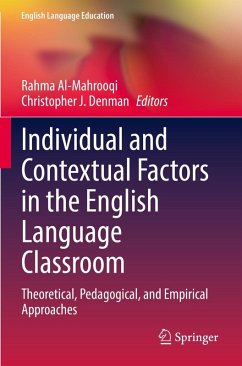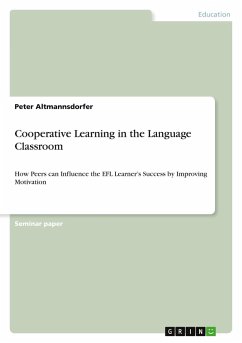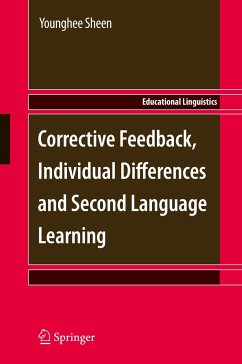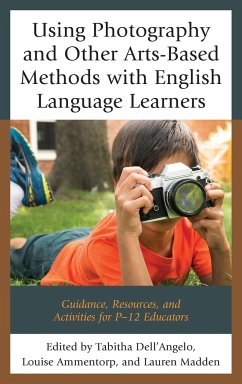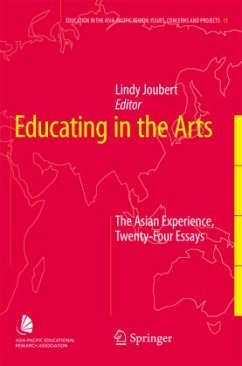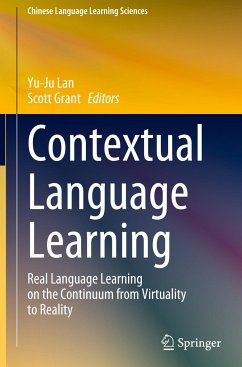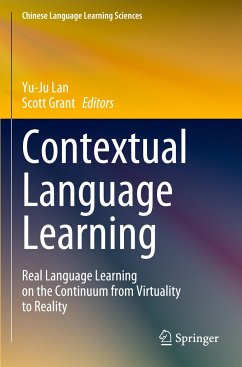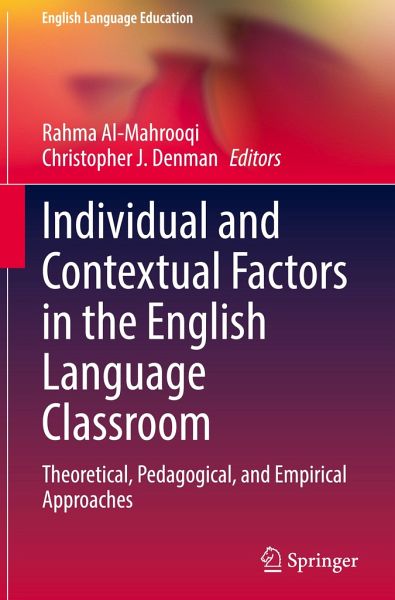
Individual and Contextual Factors in the English Language Classroom
Theoretical, Pedagogical, and Empirical Approaches
Herausgegeben: Al-Mahrooqi, Rahma; Denman, Christopher J.

PAYBACK Punkte
60 °P sammeln!
This edited volume examines a number of topics related to the roles of individual and contextual factors in English as second or foreign language (ESL/EFL) settings by presenting chapters across the three sections of theoretical and pedagogical approaches, teacher and learner research, and research into the roles of technology. The book has a focus on practical actions and recommendations related to individual and contextual factors in ESL/EFL, with a specific concern with issues of cognition, metacognition, emotion, and identity, and offers perspectives from a diverse range of international e...
This edited volume examines a number of topics related to the roles of individual and contextual factors in English as second or foreign language (ESL/EFL) settings by presenting chapters across the three sections of theoretical and pedagogical approaches, teacher and learner research, and research into the roles of technology. The book has a focus on practical actions and recommendations related to individual and contextual factors in ESL/EFL, with a specific concern with issues of cognition, metacognition, emotion, and identity, and offers perspectives from a diverse range of international education settings. For teachers of ESL/EFL, the effective recognition and integration of individual and contextual factors into the classroom may represent a significant challenge. This is often the case in those settings where native English speaking teachers work in foreign language contexts where they may have limited understanding of local cultures and languages, or where language instructors have class groups that are culturally and linguistically diverse. In these, and similar, contexts, the types and extent of individual and contextual factors impacting on language learning may challenge both learner and instructor expectations of what an effective and supportive classroom is. While such a situation offers numerous opportunities for learners and teachers to expand their knowledge of themselves and each other, it also presents the possibility for ineffective teaching and learning to occur. It is within this framework that the book presents the latest theoretical, pedagogical, and research perspectives from around the world, thereby providing a resource for all stakeholders with an interest in the roles individual and contextual factors play in the English learning process.





